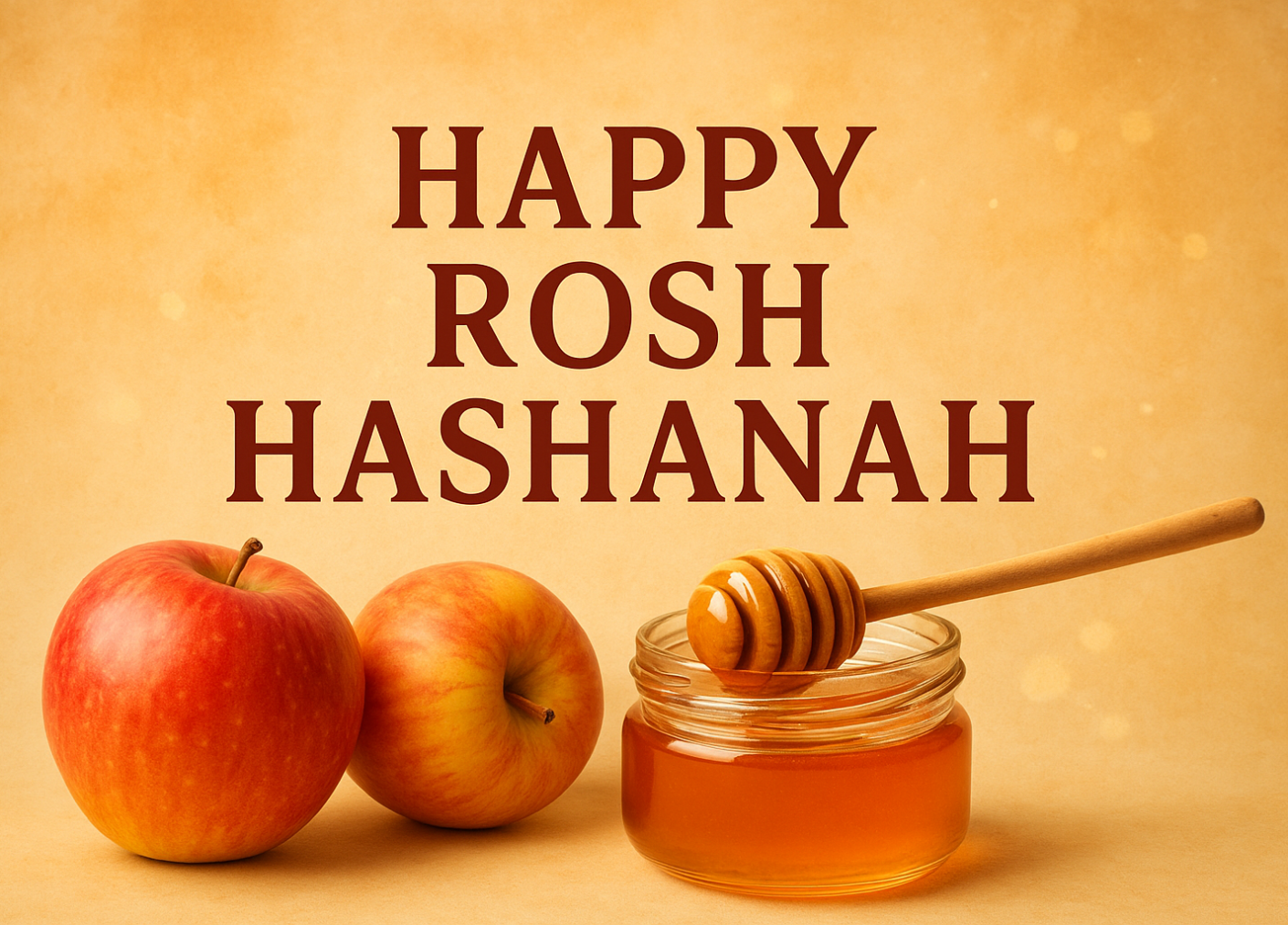Every year, during the month of September, Jewish people around the world gather with their families around a brightly decorated table to celebrate the start of the Jewish New Year, also known as Rosh Hashanah.
Similar to the world’s New Year, the holiday is celebrated by people who host parties to make wishes for another sweet year. But instead of popping champagne bottles open and waiting till midnight in order for a ball to drop, they invite their friends and family to a dinner in which they will dip an apple in honey. But why do they do that?
According to Reform Judaism, the reasoning behind the combination of apples and honey stems from the desire for a sweet and fruitful year, also said in Hebrew as “Shanah tovah umetukah.” The apple represents the hope for health, while honey is a prayer for the new year to be filled with sweetness. This might be the most well-known tradition, but definitely not the only one.
Besides the sweet combination, during the dinner, a few of the food items include the following: head of a fish, because they want to be leaders and not followers in the next year; pomegranate seeds, to represent the 613 commandments in the Torah; and a round challah bread, to symbolize a well-rounded year.
Though it might sound like it, this holiday is not all about food but instead about the coming of a new, better beginning. Every year, people are asked about their goals for the coming year, and they are mainly centered on “I hope I get better grades” or “Try out for new sports.” While those are also included in Rosh Hashanah wishes, the main ones would be those that are more spiritual. The prayers said in the synagogue highlight the focus on forgiveness and starting over. A main tradition is the blowing of the shofar (a ram’s horn) which calls people to wake up and improve themselves.
For Jewish students, Rosh Hashanah can be both religious and cultural.
“I hope to continue to pray for the hostages every day until they come home,” Adi Weissman, co-President of Jewish Student Union and Israeli Culture Club, said. This is an extremely important statement, as there are still 48 hostages in Gaza not being able to celebrate the New Year for the second time. Their seat at the table will be empty until they are returned home. Through prayers and wishes, people are able to convey their hopes for the future, and by celebrating through the many present traditions, they are able to attain good luck.
There are many Jewish students who want to connect themselves better to the religion, and Rosh Hashanah is the perfect way to do that. Learning the many extensive parts of the holiday and how it falls on the calendar near other holidays like Yom Kippur and Sukkot is very beneficial in order to connect to the roots of the Jewish people.
For the Jewish community, this holiday brings light to the current situation that has been going on for the past two years. With this, hope for a better year comes forward. So, when setting the table next Monday, think carefully about the goals you might have, as well as the wishes of those who are unable to celebrate this holiday. Dip the apple in the sweet, delectable honey, listen to the blast of the shofar, and hope for a fulfilling new year.








